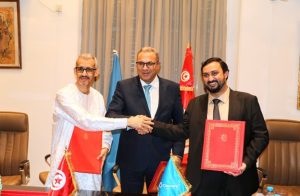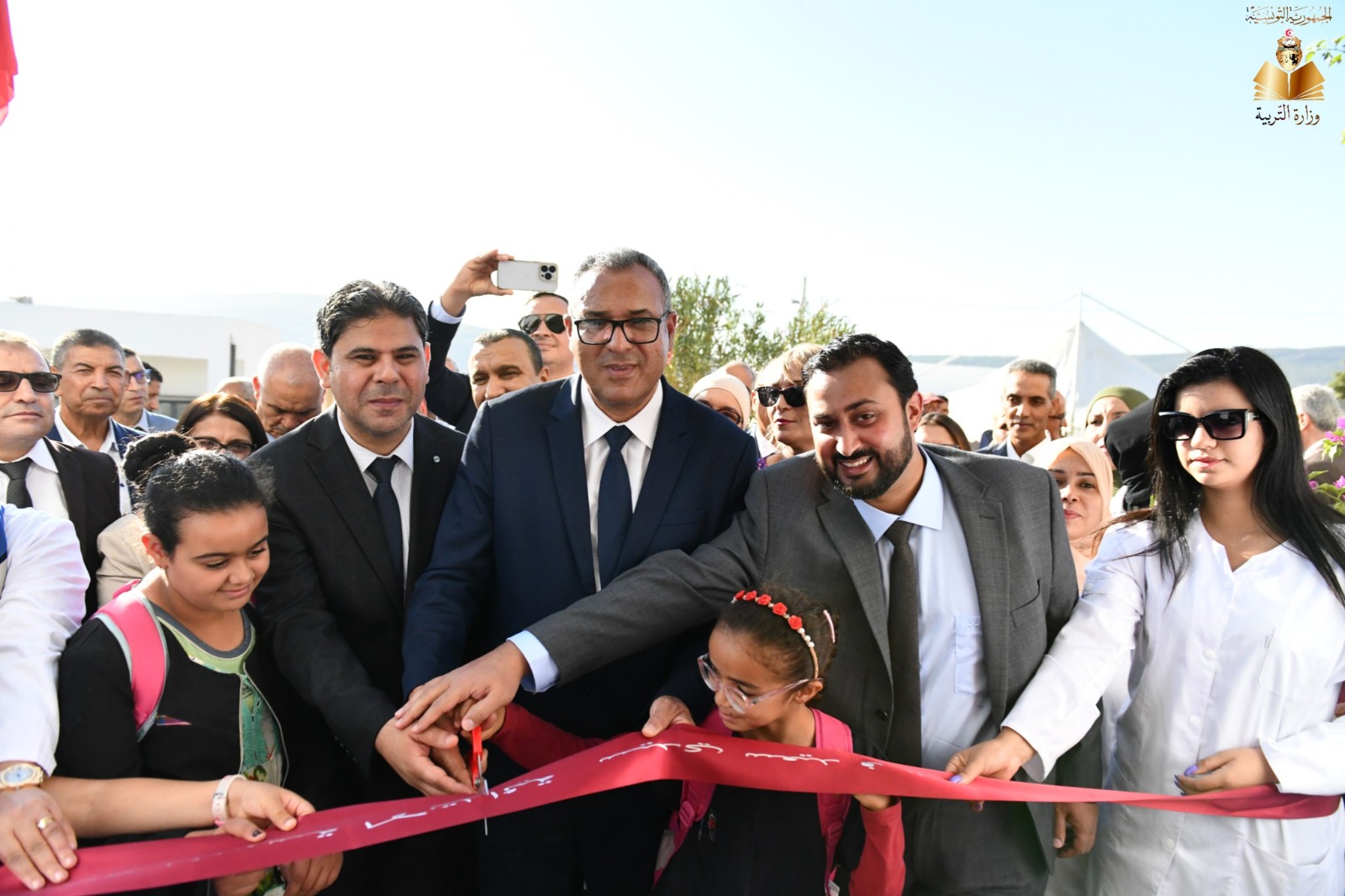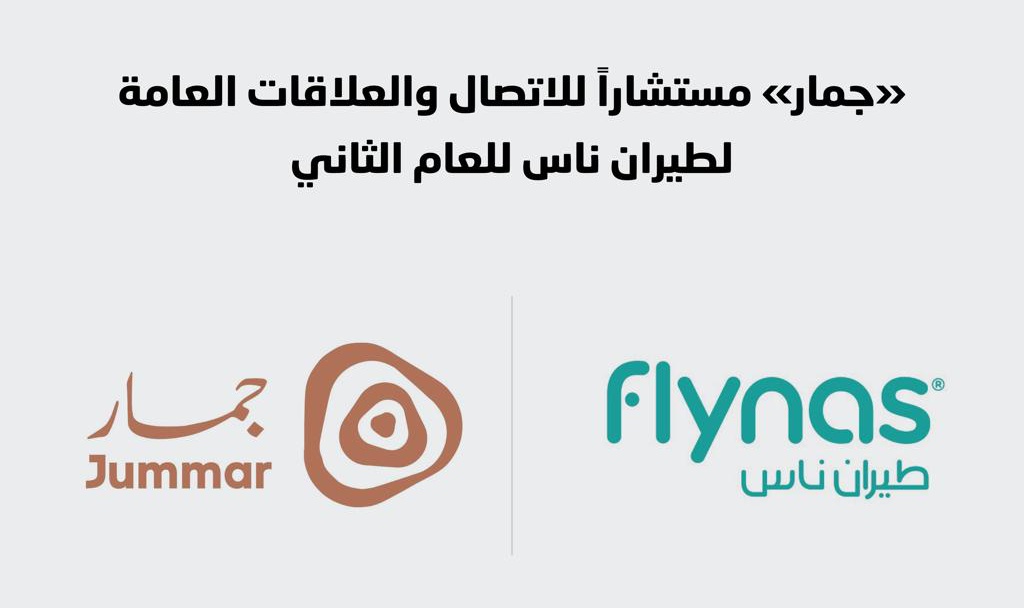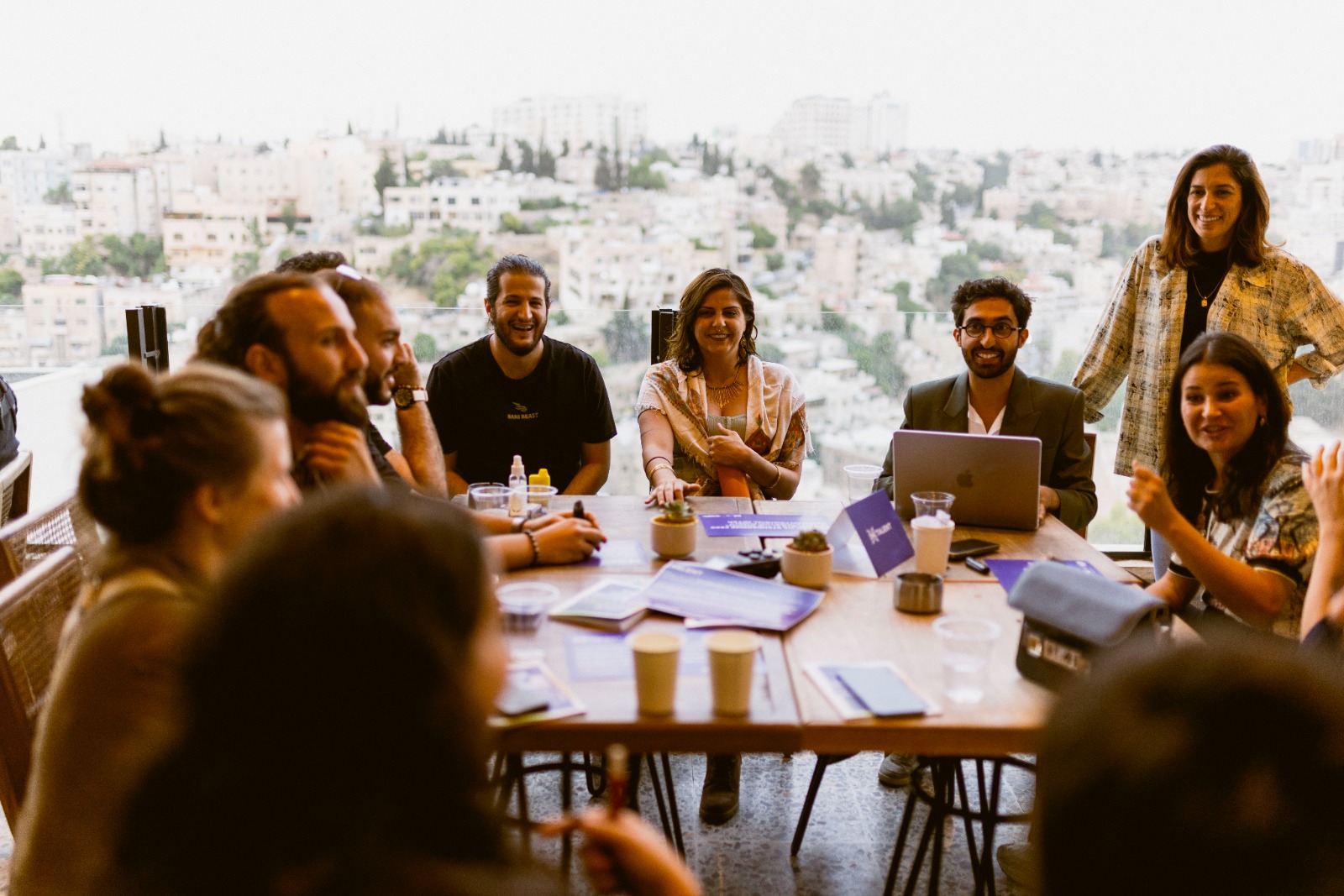The official launch of the “Tunis Future School” platform in all Tunisian schools begins, starting from the border region of Jendouba.

Under the auspices of the Tunisian Prime Minister, His Excellency Mr. Ahmed Al-Hashani, the new digital platform “Tunis Future School” for smart learning within the education system in the Republic of Tunisia has officially commenced. This marks the beginning of a fruitful collaboration between the Saudi company, Classera, a global leader in education technology, and the Tunisian Ministry of Education. This collaboration is part of a recent memorandum of cooperation between the two parties, leading to the inauguration of a digital educational platform in Tunisia for use throughout the entire education system, from students and teachers to educational process leaders and parents. The first model of the “Tunis Future School” was launched from the Sidi Saeed Elementary School in Fernana.
Minister of Education in Tunisia, His Excellency Mr. Mohamed Ali Boughdiri, and Dr. Mohamed Ould Amar, the Director-General of the Arab Organization for Education, Culture, and Science (ALECSO), along with Mr. Mohamed Al-Madani, the founder and CEO of Classera, signed a cooperation agreement to launch the smart learning project in the Republic of Tunisia. Following the signing, Prime Minister Ahmed Al-Hashani expressed significant interest in the agreement and its anticipated role in developing the education system in Tunisia. He pledged full government support to achieve the goals of the agreement.
Minister Boughdiri stated that Tunisia is working on developing the educational process by leveraging the latest technological solutions, aiming for an educational reform that reflects the Tunisians’ desire for scientific and technological progress and openness to alternative technological options. The slogan “Above every hill, a modern school” was raised to emphasize this commitment.
Boughdiri added, “The new digital platform provided by Classera will be implemented in 500 educational institutions, including primary, middle, and high schools, as a first phase, before its nationwide expansion to benefit approximately 2.5 million students.”
Regarding the choice of Classera, Minister Boughdiri explained that the selection was based on Classera’s international expertise in education technology within Arab countries. Classera will oversee the technical aspect of the project, along with on-site services such as training and technical support through a team of experts in Tunisia. The Ministry of Education will supervise the educational content of this new digital platform.
Minister Boughdiri highlighted that the new platform would be used in-person within schools, with the flexibility to adapt for remote use as a model solution in case of emergencies that may negatively impact the educational process, such as the closures during the COVID-19 pandemic.
Engineer Mohamed Al-Madani, the founder and CEO of Classera, expressed his satisfaction with signing the agreement, stating that it aims to contribute to supporting the digital transformation within the education system in Tunisia. He emphasized that the agreement reflects the Tunisian Ministry of Education’s awareness and interest in enhancing the reliance on educational technology in the coming period.
Al-Madani stated, “Within Classera, we have extensive experience in education technology, providing our services to millions of users in more than 40 countries globally. Our Learning Super Platform (LSP) is an integrated system that includes a learning management platform based on entertaining and motivating learning supported by artificial intelligence and social communication programs, resulting in one of the highest interaction rates between electronic platforms and users in the industry.”
Dr. Mohamed Ould Amar, the Director-General of ALECSO, highlighted that Tunisia is a beacon and an example in terms of the quality of education and the state’s concern for everything related to the right to learn. He stressed the necessity of renewing educational methods and tools in the technological and digital context to cope with international events such as pandemics, conflicts, and other challenges that make in-person learning difficult.





